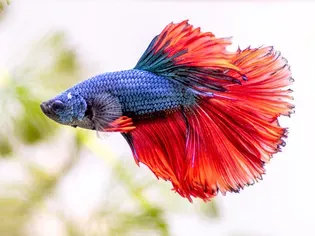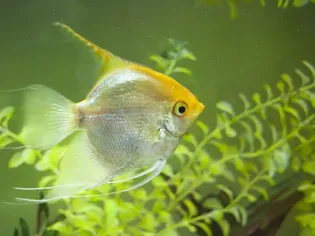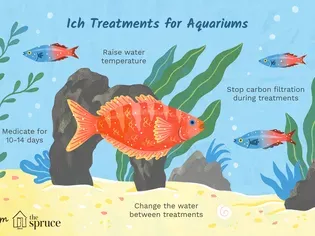How Long Do Betta Fish Live?
Updated on 05/27/24

Unveiling the Lifespan Secrets of Betta Fish: A Comprehensive Guide
Introduction
Betta fish, renowned for their vibrant colors and captivating personalities, have become cherished companions in countless homes worldwide. Their unique appearance and playful antics have captivated enthusiasts of all ages. However, one question that often arises is the perplexing matter of their lifespan. This comprehensive guide will unravel the intricate factors influencing the longevity of betta fish, providing valuable insights to ensure their well-being and maximize their time by our side.
Average Lifespan
In general, the average lifespan of a betta fish ranges from 2 to 5 years. However, meticulous care and ideal living conditions can extend their lifespan, allowing them to thrive for up to 10 years or even longer. Various elements, including genetics, diet, water quality, and overall health, play crucial roles in determining the longevity of these captivating creatures.
Factors Affecting Lifespan
1. Genetics
The genetic makeup of a betta fish heavily influences its lifespan. Fish with a strong genetic predisposition tend to live longer than those with weaker genes. Responsible breeders prioritize breeding healthy individuals with desirable traits, contributing to the overall life expectancy of their offspring.
2. Diet
Nutrition plays a pivotal role in the longevity of betta fish. A balanced diet, rich in high-quality proteins, vitamins, and minerals, is essential for maintaining their overall health and vitality. Live foods, such as brine shrimp and bloodworms, provide valuable nutrients that support their immune system and promote well-being.
3. Water Quality
Betta fish require pristine water conditions to thrive. Ammonia, nitrite, and nitrate levels must be kept within safe limits to prevent stress and disease. Regular water changes and the use of a high-quality filter are crucial for maintaining water quality and ensuring the longevity of betta fish.
4. Temperature
Betta fish are tropical fish that prefer warm water temperatures between 78°F (26°C) and 82°F (28°C). Extreme temperatures can compromise their immune system and shorten their lifespan. Maintaining a stable temperature within their optimal range is essential for their well-being.
5. Tank Size and Environment
Betta fish require adequate space to swim and explore. A tank that is too small can lead to stress and health problems, reducing their lifespan. Ideal tank sizes for betta fish range from 5 to 10 gallons, providing ample room for them to thrive. The tank should also be decorated with live plants and hiding places to simulate their natural habitat.
6. Stress
Stress is a major factor that can shorten the lifespan of betta fish. Overcrowding, poor water quality, and aggressive tankmates can contribute to stress. Ensuring a peaceful environment, providing adequate hiding spaces, and maintaining optimal living conditions can help reduce stress levels and prolong their lifespan.
7. Disease
Disease is a leading cause of death in betta fish. Poor water quality, improper nutrition, and stress can weaken their immune system, making them more susceptible to infections and diseases. Maintaining a clean tank, providing a balanced diet, and minimizing stress can help prevent disease and extend their lifespan.
Examples of Longevity
Countless examples showcase the remarkable longevity of betta fish under exceptional care.
* Betty - A female betta fish named Betty lived an astounding 10 years and 7 months, making her one of the oldest known betta fish ever. Her owner attributed her extraordinary lifespan to a nutritious diet, pristine water quality, and a stress-free environment.
* Fighter - A male betta fish named Fighter lived for 9 years and 2 months. His owner credited his longevity to a varied diet, regular water changes, and a tank decorated with live plants and hiding places.
Conclusion
The lifespan of betta fish is influenced by a multitude of factors, including genetics, diet, water quality, temperature, tank size, stress, and disease. By understanding these factors and providing optimal care, betta fish owners can create a thriving environment that supports their longevity and allows them to live a full and happy life. Remember, every betta fish is unique, and their lifespan can vary based on individual circumstances and the level of care they receive. By embracing a holistic approach to their well-being, we can cherish the companionship of these captivating creatures for many years to come.
Explore More Pets

Freshwater Aquarium Filters
How to Deal With Cloudy Aquarium Water

Saltwater Aquarium Filters
How Do You Remove Chloramines From Tap Water?

Freshwater Aquariums & Habitat
Can I Keep My Koi Fish Inside?

Saltwater Aquariums & Habitat
14 Best Floating Plants for Your Aquarium

Freshwater Fish Health
How to Treat Ich on Freshwater Fish

Saltwater Fish Health
Fin Rot in Aquarium Fish

Freshwater Aquarium Filters
How to Do Aquarium Water Changes

Saltwater Fish Health
How Do Fish Get Parasites?
